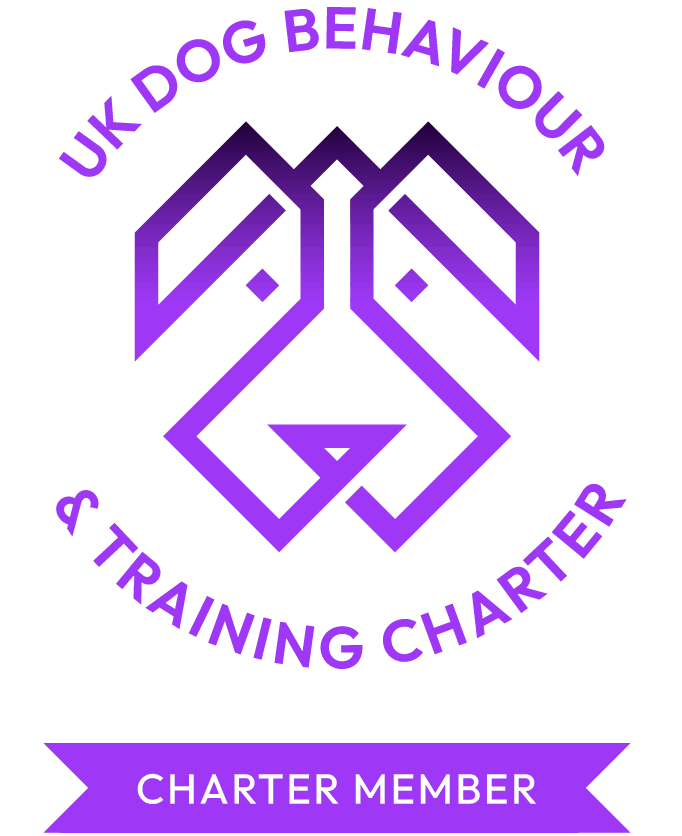Dog behaviourist near you
It is not uncommon for dog owners to need a little extra guidance and support at some point during their dog’s life. Not every dog is the same and some dogs are more challenging than others. The good news is there are professionals out there who will help you to resolve them so do ask for help.
If you are confused by your dog’s behaviour or if you need help with improving your dog’s behaviour it would be best for you to speak to a professional animal behaviourist. There are many who specialise in canine behaviour and they will be able to work wonders with your dog.
Finding a dog behaviourist or trainer
If you are not sure where to start, speak to your vet about a veterinary referral or recommendation for a dog trainer or dog behaviour specialist. You must always keep animal welfare in mind and make sure your dog has no underlying medical issues before the initial dog behaviour consultation. There is a difference between dog training problems and dog behaviour problems.
Although they sound as if they do a similar job, dog trainers and dog behaviourists have expertise in different areas and we will help you by explaining what these are below.
What is the difference between a dog trainer and a behaviourist?
Dog trainers specialise in teaching you how to use reward-based training to teach your dog what you would like them to do. Any trainer who uses positive reinforcement is generally a good choice. They can also specialise in specific types of dog sport such as agility, scentwork, hoopers, cani-cross or trick training. We have outlined some common dog behaviours below to help you decide whether you need a dog trainer or a dog behaviourist.
A professional dog trainer can help with:
Pulling on the lead (loose lead walking) Not coming when called (recall) House training Jumping up Boredom related barking (attention-seeking) Toilet training (unless anxiety-related) Not jumping up Puppy training Basic obedience
Dog behaviourists specialise in emotional problems dogs can have for example, when they become anxious, frightened, frustrated or over-excited. When dogs feel these emotions, they can behave in such a way that is aggressive, destructive or dangerous to them or their owners. These types of problem behaviours aren’t able to be resolved simply through training, because as well as learning to behave in a different way, the dog also needs to learn to feel differently about things. A dog behaviourist will be able to help with the same issues as a dog trainer, but the following behaviours will generally require professional support from a qualified dog behaviourist (not a dog trainer) through a behaviour consultation:
A dog behaviourist can help with:
Aggression towards people Aggression towards other dogs Barking (abnormal vocalisation) Guarding Multi-dog household issues Multi species household issues (other animals in the house) Repetitive or compulsive behaviours Phobias (firework, noise sensitivity, car travel) ·Anxieties Separation related issues such as separation anxiety Destructiveness Biting, snapping or growling Chasing behaviours (predatory or other) Hyperactivity Self-mutilation Building a dog’s confidence Reactive dogs
After your initial behaviour consultation, a dog behaviourist will show you how to help your dog feel better by identifying and understanding your dog’s emotions behind the unwanted behaviour. They will help you to remove the emotional distress involved and create a tailor-made plan for you to follow. This will teach your dog to have a more positive emotional reaction and alternative more appropriate behaviour instead.
Always use positive reinforcement to train a dog
Regardless of who you choose, dog training and working on behavioural problems should only be done with the dog’s welfare (including physical, mental and emotional) in mind. Dog behaviourists or those claiming to work with dog behaviour should never use aversive training techniques. This includes methods such as shouting, hitting or intimidating the dog or using training equipment that could cause harm such as a prong collar or e-collar. A good dog behaviour specialist should have the skills to address issues such as aggression, separation anxiety or barking without using aversive training techniques.
How do I choose a dog behaviourist?
In the first instance if you are worried about your dog’s behaviour we would recommend seeing your veterinary surgeon for advice and also to check your dog over for any medical issues. If the issue is very severe, your vet may refer you to an RCVS advanced practitioner or a consultant under the Animal Behaviour and Training Council.
Frequently asked questions:
When should I see s dog behaviourist?
If your dog is showing any behaviour issues, you need the help of a dog behaviour specialist or trainer as soon as possible. Dog behaviour problems are unlikely to improve on their own and would likely get worse. Dog behaviourists are widely available via video call and will be able to provide you with immediate help in terms of management strategies and begin the training plan. If your dog’s behaviour problems are severe, you may be referred to a clinical animal behaviourist, a veterinary behaviourist or someone who specialises in applied animal behaviour. These people usually require you to have a veterinary referral which is common in companion animal behaviour cases.
What can a dog behaviourist do?
When you own a dog with behavioural issues, life can be incredibly stressful. You can waste so much time searching the web trying to decipher the conflicting advice or even trying things that could make the behaviours worse or adversely affect the dog.
Learning how to train your own dog has many benefits – it can help to build and strengthen your relationship with your dog, teach him or her basic social skills and is fun! Learning should always be a positive experience for your dog and you will need the support and guidance of a professional animal behaviourist.
A behaviourist will be able to help you identify exactly what your dog is experiencing and how to address the behaviour problem. They usually start with a behavioural consultation and provide a training plan with ongoing support.
Be sure to look at what methods they use to train dogs and check companion animals are treated with respect and kindness. Pet dog trainers or dog behaviourists who use punitive training methods which include the use of a prong collar, choke chains or intimidation should be avoided.
How to find a qualified dog trainer or behaviourist?
Once you have decided whether you need a dog trainer, dog behaviourist or clinical animal behaviourist you can then search for one who covers your surrounding area or check out some examples of a recommended organisation by clicking on the following websites:
The Institute of Modern Dog Trainers
https://www.imdt.uk.com/find-a-qualified-imdt-trainer
The Association of Pet Behaviour Counsellors
https://www.apbc.org.uk/find-an-apbc-member/
The Animal Behaviour and Training Council
https://abtc.org.uk/practitioners/
The International Association of Animal Behaviour Consultants
https://m.iaabc.org/consultant/
The Association for the Study of Animal Behaviour
https://www.asab.org/ccab-register
The Association of Pet Dog Trainers
https://apdt.co.uk/choosing-a-trainer/
If you have adopted a dog from a registered charity, you also may be able to get a recommendation from the charily on their approved trainers and behaviourists.
Find an APBC member
The Association of Pet Behaviour Counsellors are a reputable organisation and offer different levels of membership from a full member, provisional member to student member and academic member. These are individuals who have met the minimum level of education and experience needed to qualify.
How much does a dog behaviourist cost?
This widely varies depending on where you live and the level of qualification and experience the behaviourist has. Depending on what associations they are affiliated with, you can claim the cost of most dog behaviourists through pet insurance companies. Do check with your own insurance as this depends on the policy and what level of cover you have.
I live in central London but I don’t have a car, how can I find an animal behaviour specialist or clinical animal behaviourist?
Once you have seen your vet and there are no specialists for the problem behaviour your dog has nearby you can find excellent canine behaviour specialists who do remote video sessions. Your vet may be able to explain how this works, but on the whole, they can be extremely successful. Once you have identified your dog’s problem behaviour, you can contact an animal behaviour specialist and they will talk you through exactly how the sessions will work.
I have a small dog with aggression issues, I can’t find a dog trainer in the surrounding areas who can help. What shall I do?
In the first instance, we would recommend giving your local veterinary surgery a call to see if they can recommend a canine behaviour specialist or someone experienced in that type of dog behaviour problem. If your dog’s behaviour is severe, they may as to see your dog in the practice to check them over and refer you to a specialist in clinical animal behaviour.
As a dog owner, do I have the skills to train my dog myself?
The short answer is, it depends on the training or behaviour problem. There is a great deal of information online that it can be hard to find the best advice. You may find online training videos useful for obedience issues but when you have a dog with behaviour problems, this would most likely be best supervised by a specialist in behaviour problems such as a dog behaviourist or someone qualified in applied animal behaviour.
Contact Us
Get in touch for a FREE 20 minute telephone or video call about how we can help your dog. It’s the ideal opportunity for you to get to know us, discuss your specific training needs and for us to explain how we can help.
Telephone: 07557 301161
Disclaimer: The information provided in this blog is for informational purposes only. Read our full Disclaimer.






